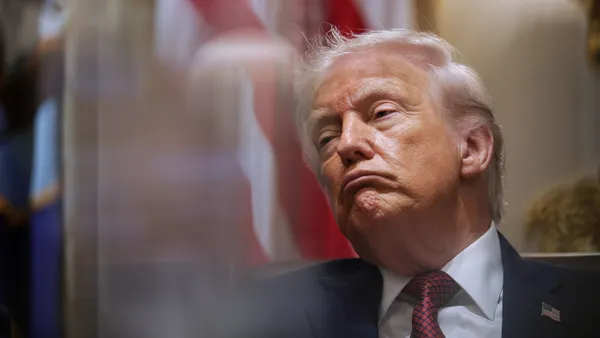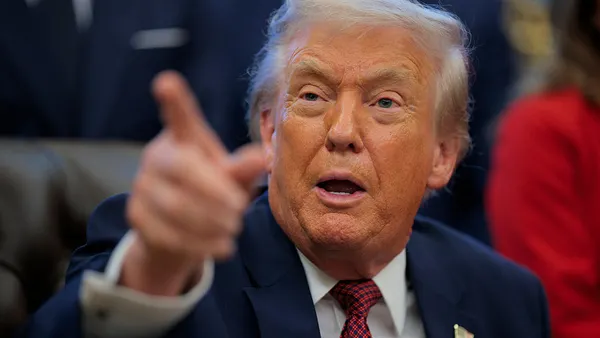Dive Brief:
- Tariffs on Chinese imports may remain in effect even if the Trump administration's trade war with China resolves, White House economic advisor Larry Kudlow said to reporters at the U.S. Export-Import Bank annual conference in Washington, D.C., Thursday, Reuters reported.
- "We have to see what the track record is and we’re not going to give up our leverage. However, just to clarify, that doesn’t necessarily mean all the tariffs will be kept in place. Some of the tariffs would be kept there," Kudlow reportedly said.
- Leaving tariffs in place as a point of leverage even after a deal is reached has now been confirmed as a possibility by President Trump and anonymous officials speaking to Reuters. "We're not talking about removing [tariffs], we're talking about leaving them for a substantial period of time, because we have to make sure that if we do the deal with China that China lives by the deal," Trump told reporters on the White House lawn, according to CNBC.
Dive Insight:
The idea that tariffs may remain even after negotiations reach a satisfactory end will be unwelcome news to the business community, which has dealt with one year of uncertainty as to which categories of goods will be affected next.
This news may, however, offer some comfort to the growing list of businesses that have planned for tariffs to stay in place if not increase this year.
Kudlow described tariffs as an "enforcement mechanism" that could help hold China accountable if a trade deal is reached.
U.S. Trade Representative Robert Lighthizer and Treasury Secretary Steven Mnuchin wrapped up negotiations in Beijing today, and the conversations will continue in Washington next week. Mnuchin described the talks as "constructive."
A Reuters report indicated China has made some movement on perhaps the stickiest issues within those negotiations: technology transfer. Chinese negotiators reportedly changed their tune on the issue, displaying a willingness to acknowledge the practice and discussing specifics of how to move past the issue. Intellectual property and deal enforcement reportedly remain contentious.














